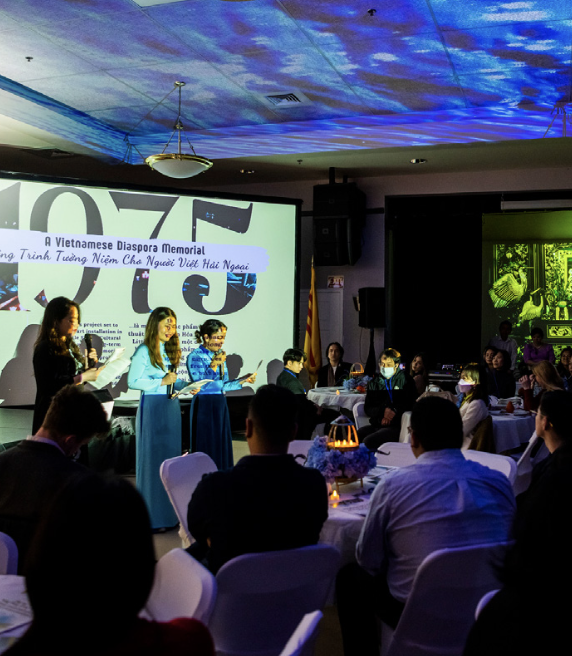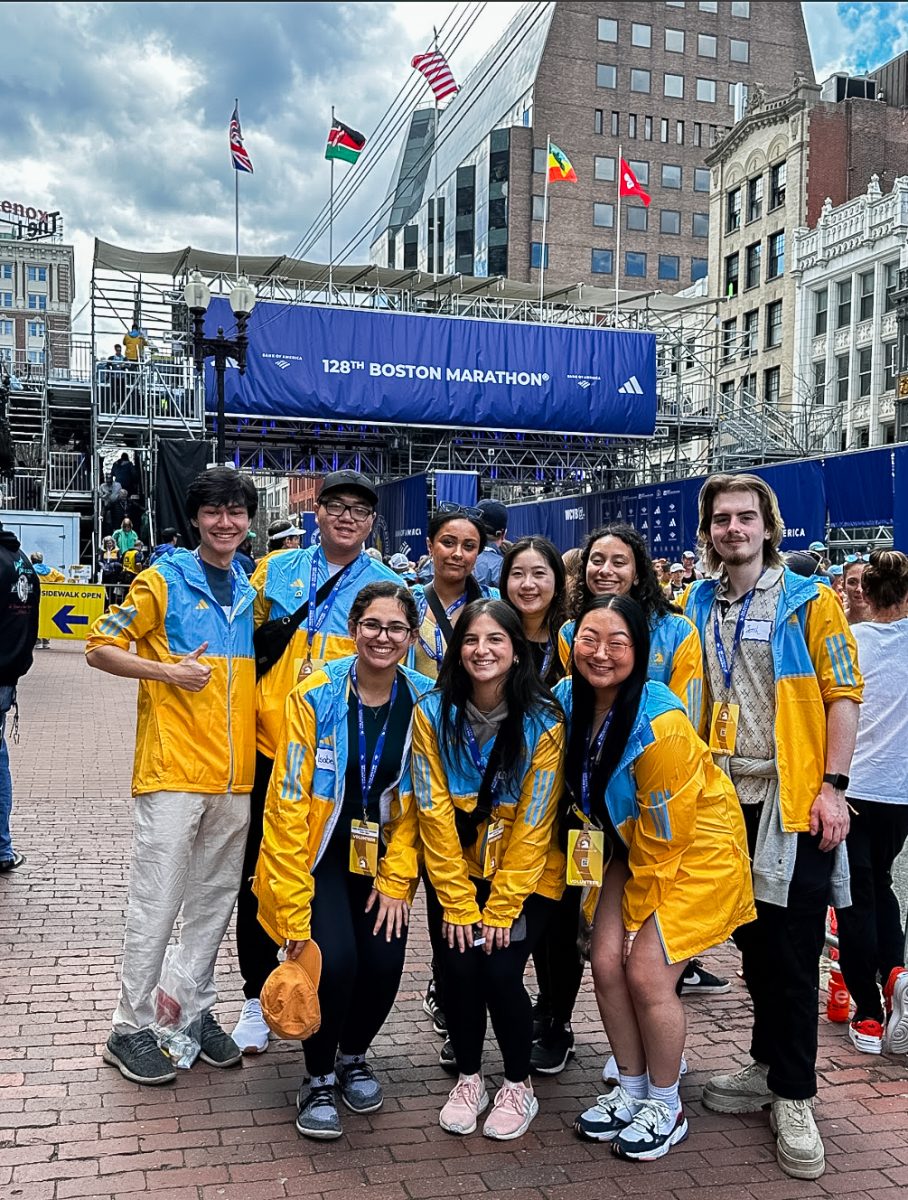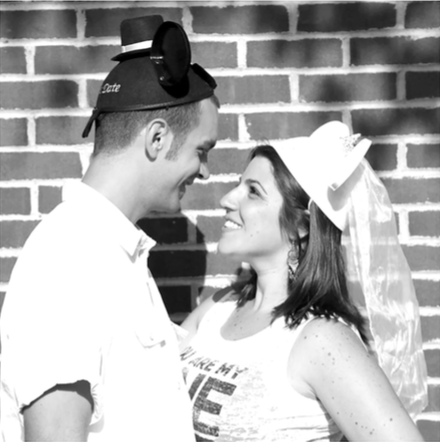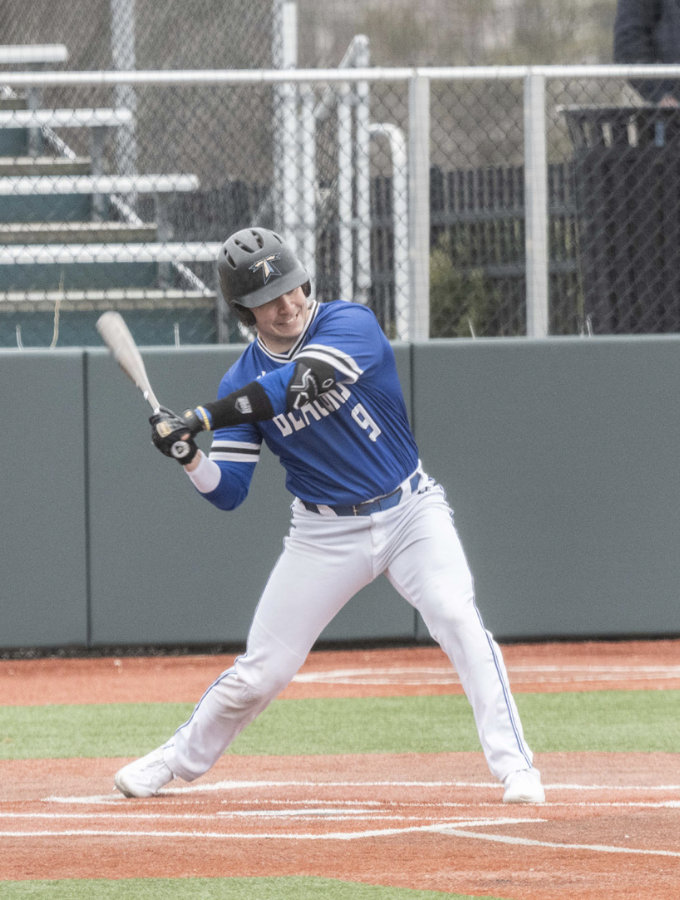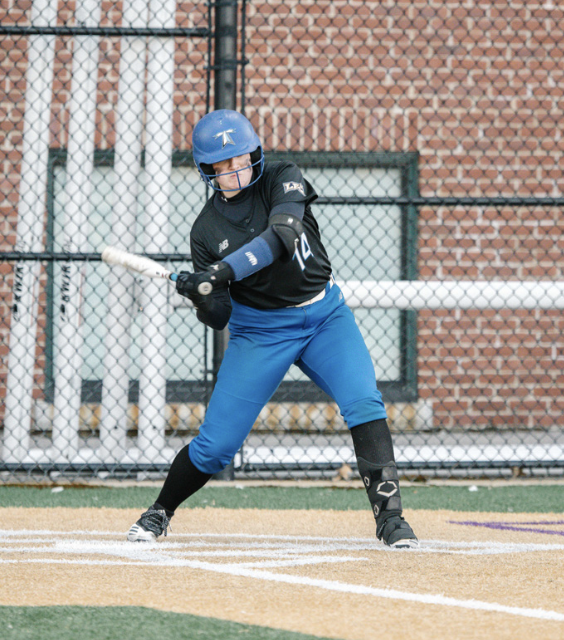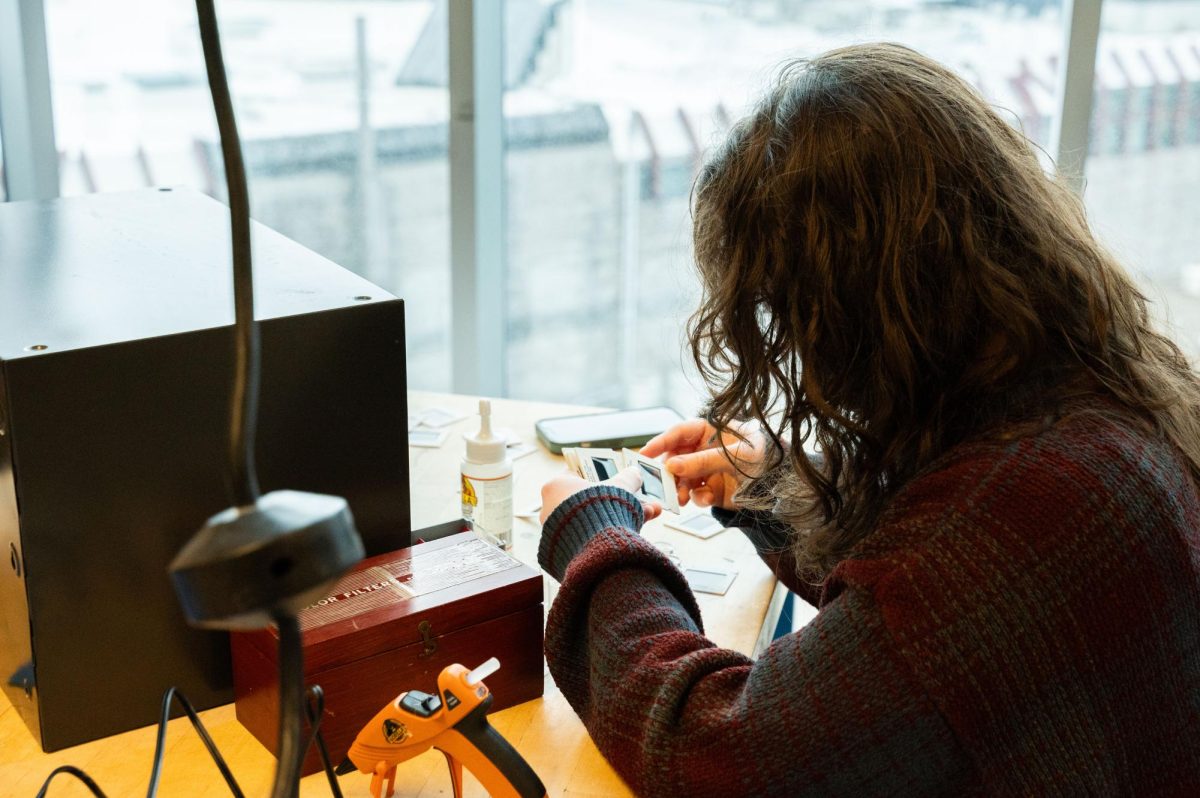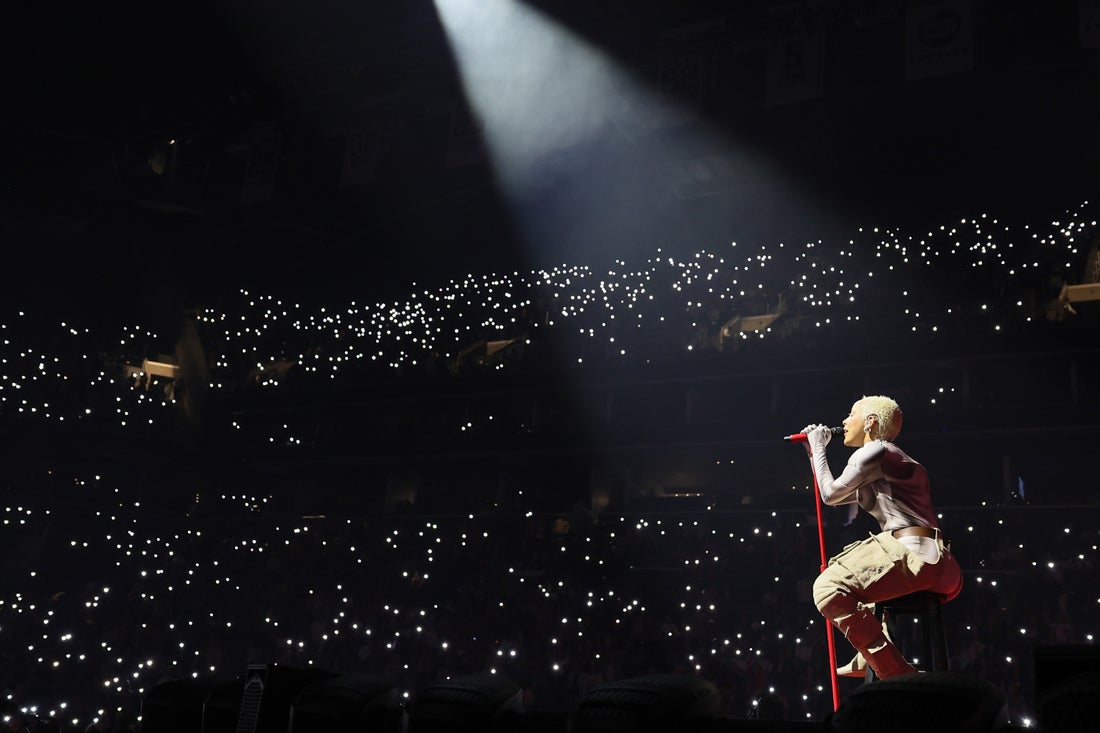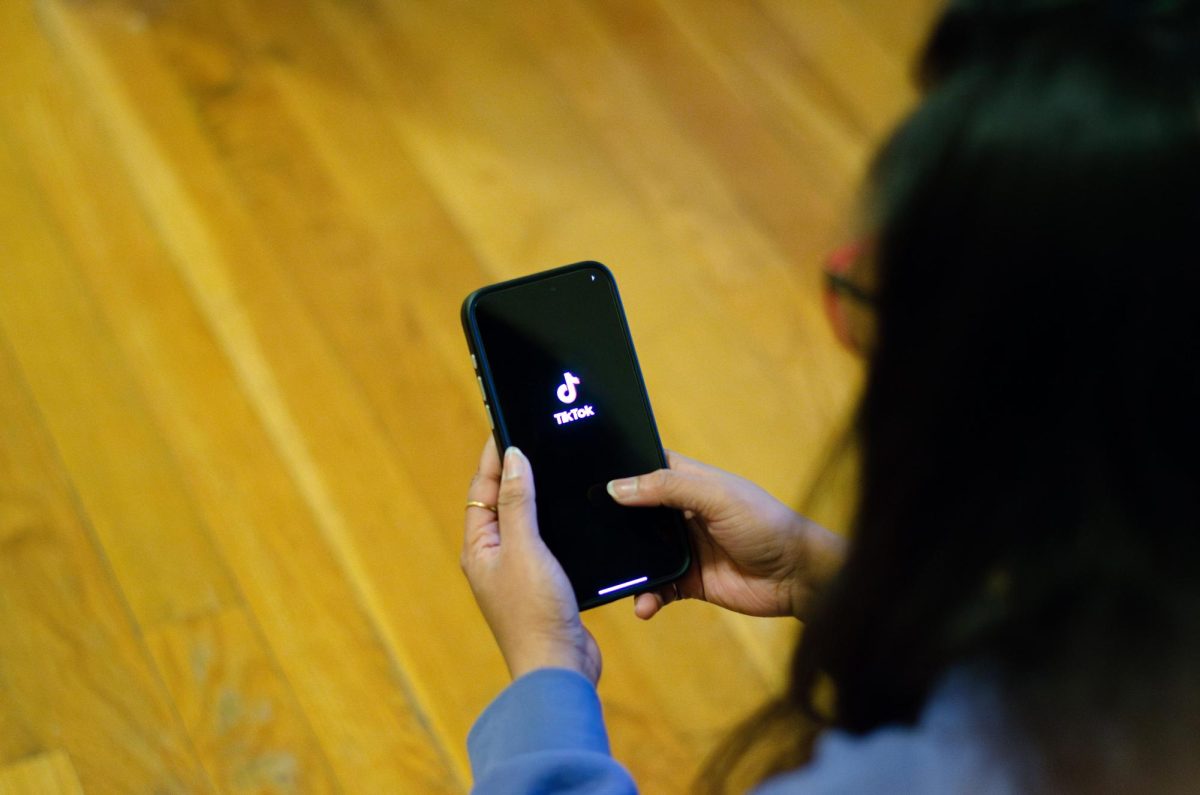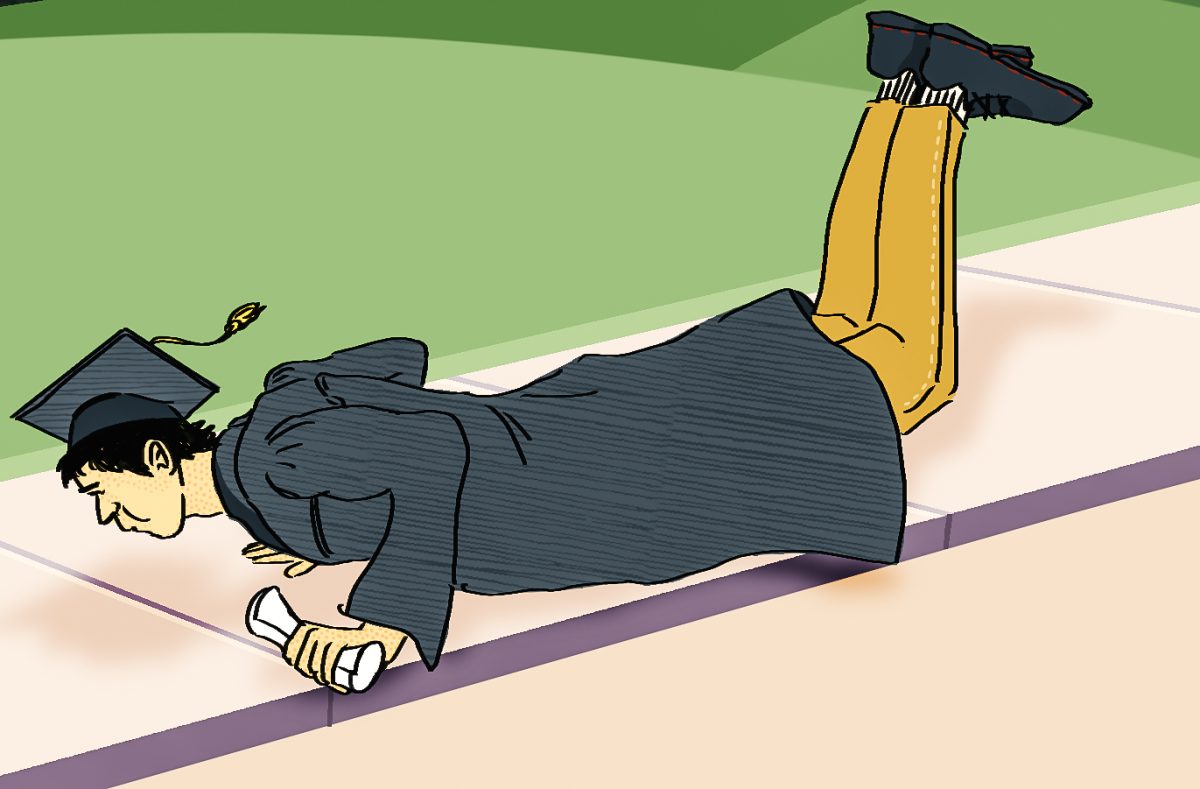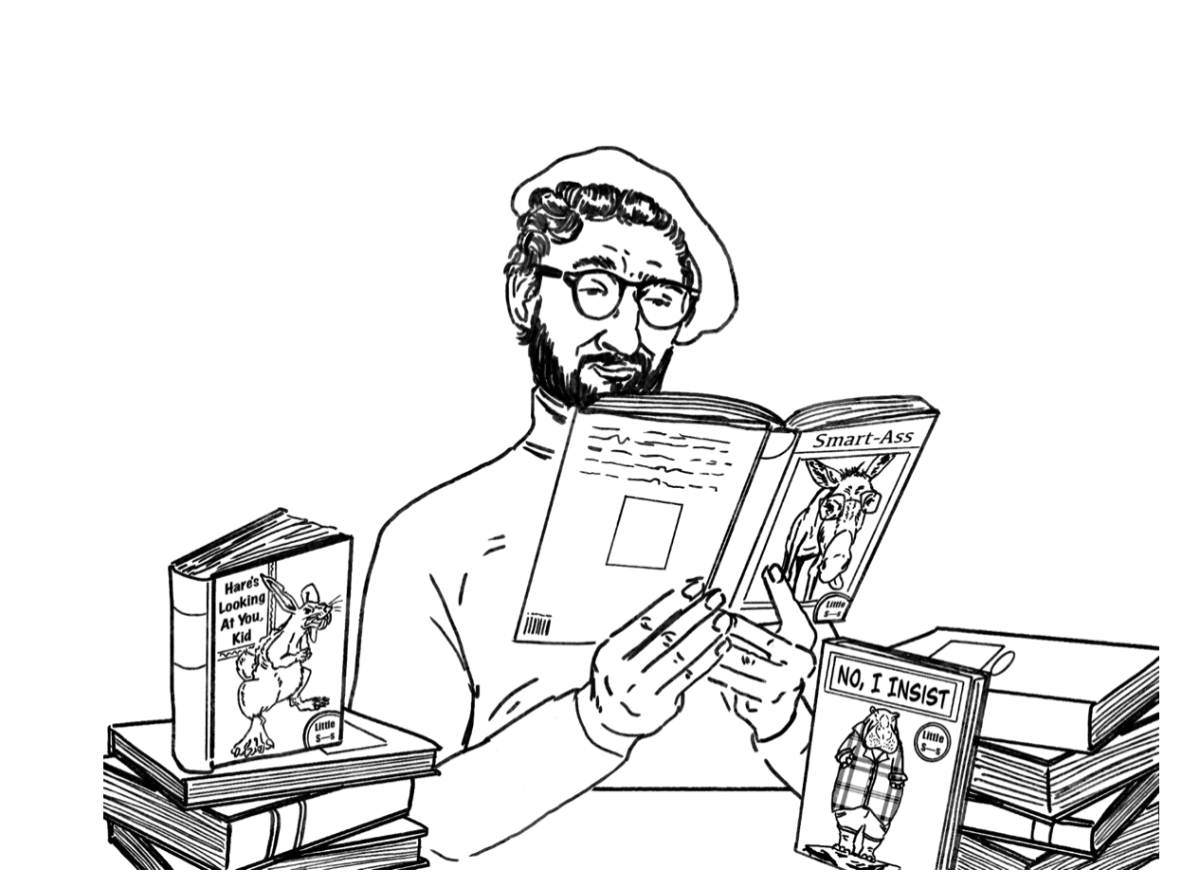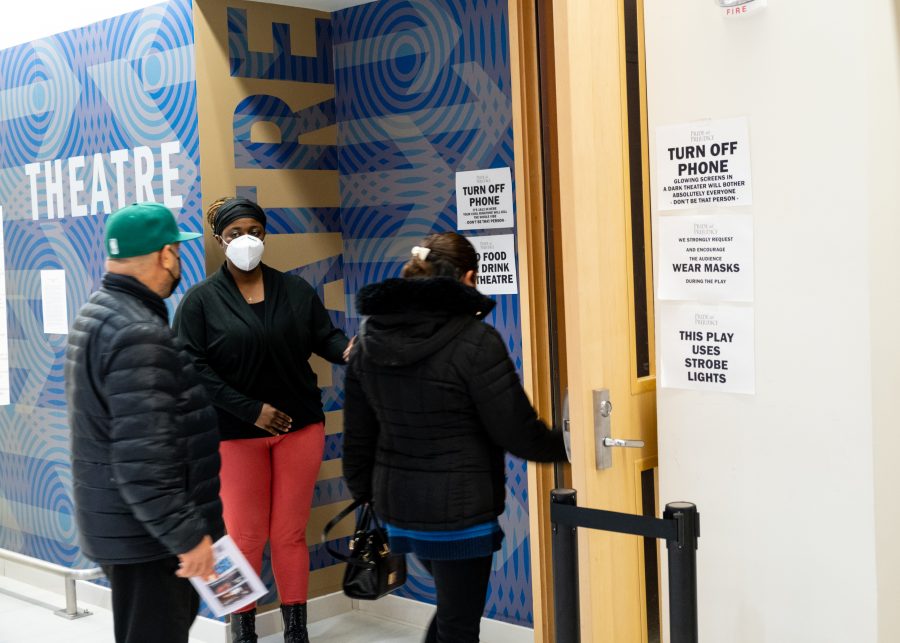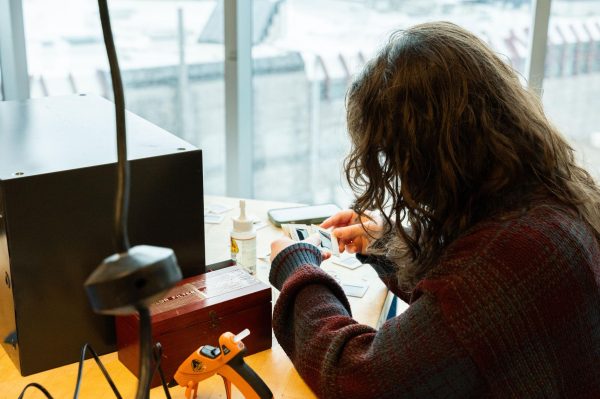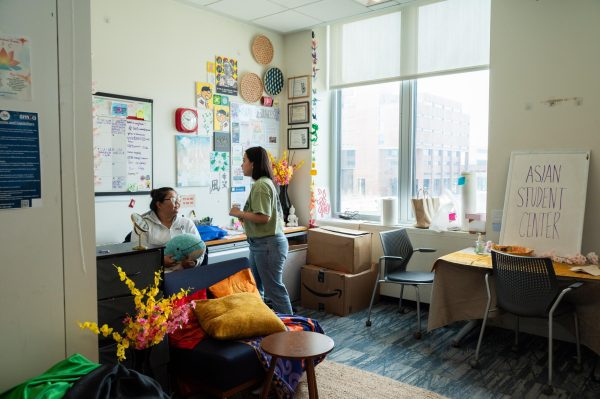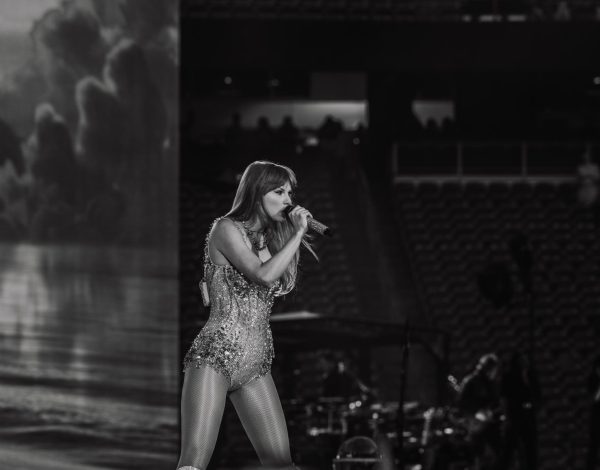UMass Boston’s ‘Pride and Prejudice’ transforms Austen in a delightful and witty way
People wait to view the UMass Boston production of “Pride and Prejudice” in University Hall on Friday, April 14, 2022. Photo by Josh Kotler / Mass Media Staff
April 14, 2022
While many students enjoy going to the theatre, reading Jane Austen’s classic novels or even both, many more do not. The act of going to see a play or reading a book may feel excruciating and exhausting to the members of this subset of the population, however, they are still a valuable market to cater to. These students bring fresh faces and takes to the theatrical scene, so oftentimes, they’ll need works to cater to their tastes as well. Luckily, UMass Boston’s production of “Pride and Prejudice” finds this perfect balance, wrapped up perfectly in two acts.
UMass Boston’s production of Kate Hamill’s adaptation of “Pride and Prejudice” ran from April 7 to April 14, with tickets being offered to not only students and staff of the university, but also friends and family of the cast and crew. This was exhilarating to see a relatively packed audience with a variety of ages, ranging from grandparents, to adults in their thirties and forties, to college-aged students, to young children.
From the moment audience members line up to enter the small University Hall black box theatre, they are immediately transported into Hamill’s “Pride and Prejudice.” A large poster board, dubbed “The Longbourn Listener,” chronicles bits of gossip surrounding both the characters in the play and cast members in the show. Examples included a luncheon hosted by Cece Whitlock where Amanda Edwards attended with Lieutenant George Wickham, or the announcement made by Lady Catherine De Bourgh that her daughter, Anne, and Anne’s close friend Sky Chin would be inheriting the Rosings estate. These bits of gossip also included pronouns following the respective characters or actors’ names, which was nice to see worked in so effortlessly.
Once entering the theatre, audience members are immediately transported into England in the 19th century. The stage was clearly divided to help attendees understand where they were in the show—the Bennet family living room was always the blue set; the Bingleys’ or Collins’ home (depending on the act) was always the purple set; and the center, with its beautifully painted floor depicting Lizzie and Darcy, was for any other scenes, such as balls or Darcy’s home. This made it incredibly easy to follow, and also easy for audience members to immerse themselves into each scene.
The first scene immediately transported audience members into the chaotic fun of the play. The show opens with a dance sequence, showcasing not only the dynamic between the Bennet sisters, but also any love interests. Classical and modern music were combined in a delicate and perfect balance, which seemed to be a consistent theme throughout the show. The actors took part in a pairing game of Blind Man’s Bluff to classical music, however not before the Bennet sisters were dancing rather proactively on each other to a modern song.
This duality only continued throughout the play. Though the characters spoke in British accents and wore costumes that could mirror that of the time period, the dialogue was incredibly modern and sounded like language modern students would say. There are several sexual innuendos in the text that the actors fed into, which made the dialogue even more comical for college students. Even though the actors wore costumes resembling clothing from the 19th century, their makeup looked like it belonged in HBO’s “Euphoria” with sparkly eyeshadow and glitter eyebrow gel.
Every single member of the cast had been incredible and entertaining, however stand out members were Ema Almon (Lizzie), Sky Chin (Jane/Miss De Bourgh), Shea Flanagan (Mr. Darcy) and Amaya Levens (Mrs. Bennet/Servants). Levens was absolutely electric in every single scene she was in, and truly lit up the stage. Almon had incredible chemistry with all of her scene partners, but especially so with Chin and Flanagan, and she truly thrived as Lizzie Bennet. Flanagan’s interpretation of Darcy was both frustrating and awkwardly loveable, making him all the more enjoyable to watch grow as a character and fall in love with Lizzie. Chin did an excellent job in making her two characters vastly different by means of her mannerisms and her tone of voice, which can be difficult for many actors playing multiple roles.
All of the actors that doubled up their roles did a wonderful job of making each of their roles clear and different. Often these characters were in the same scenes, which made for some rushed, and at times hilarious, costume and character changes. In one scene, for instance, Jack Rousell, the actor who played both Mary and Mr. Bingley, would have to switch between these vastly different characters, often with only a line to get in character. UMass Boston’s production of “Pride and Prejudice” truly was a showcase of talents—not just within the incredible cast, but the whole tech crew and directing team that helped make the show the masterpiece audience members got to see.
The show concluded just as it began—a dance party. Though the finale begins with a slow dance between Lizzie and Darcy, paralleling the game in the opening scene, it ends with a lively dance scene with every single character. It was heartwarming to see every single member of the cast cheer each other on as they gave their bows, as well as cheer on the crew members when they gave their bow. This perfectly captured the lighthearted and welcoming energy of the play, wrapping up the show absolutely joyously.
However, for some audience members, it may be hard to suspend their disbelief and keep their attention due to how the stage was set. Since the stage was set in an alley, audience members could easily look across the stage and see other members of the audience, rather than the set and actors. It wasn’t too distracting since there was always something happening on stage to keep the attention of audience members, however this stage design could be a bit of a problem to other audience members.
UMass Boston’s production of Kate Hamill’s adaptation of “Pride and Prejudice” had been joyous and witty, with the perfect amount of heart. It had been an absolute delight to see the hard work of the entire cast and crew come together after being halted due to COVID-19. Unfortunately, due to the licensing agreement and royalties with the company, there will be no recorded performances of the play. If any students and staff missed the production, be sure to keep an eye out for the next UMass Boston production in order to get tickets!


